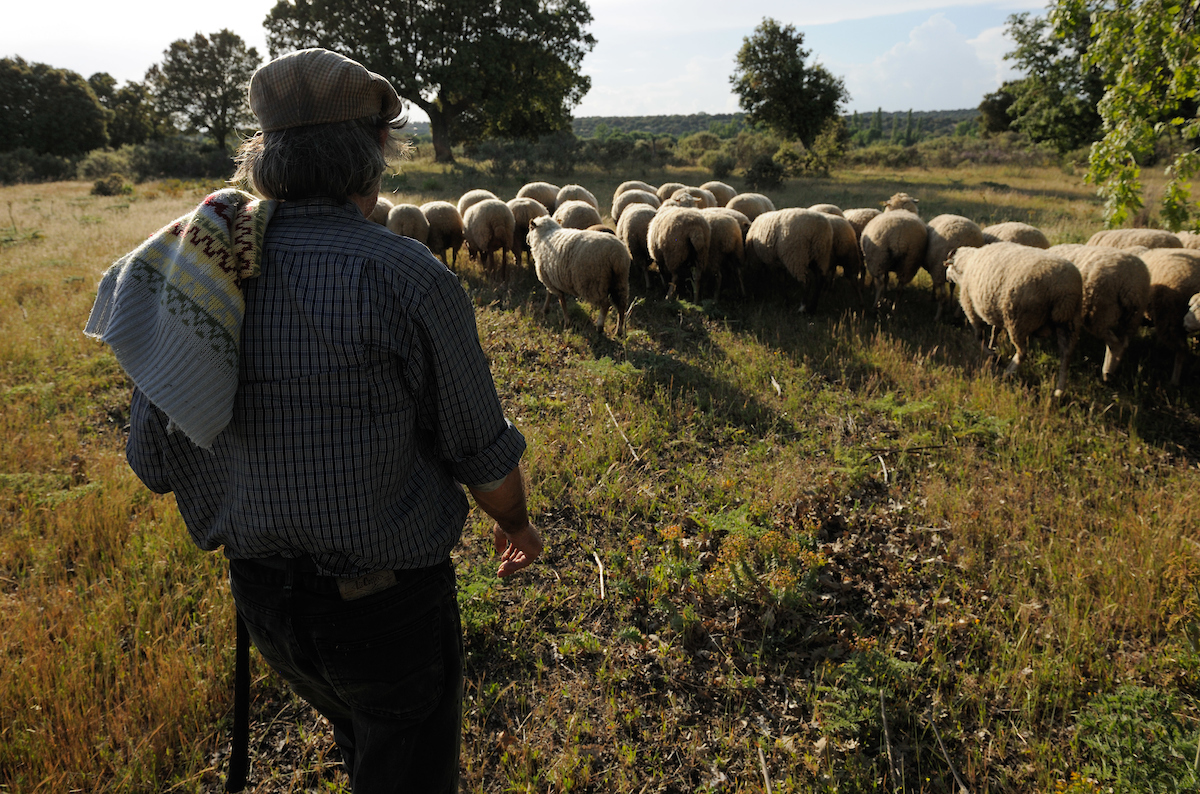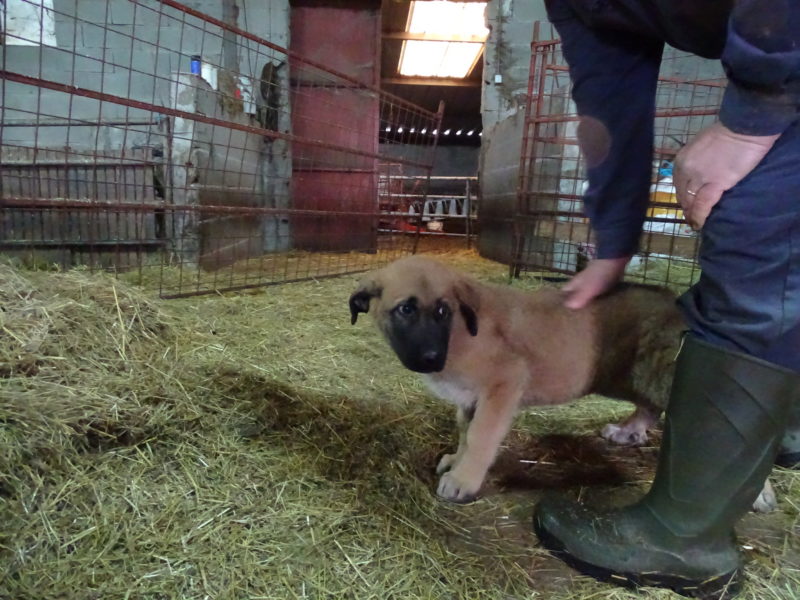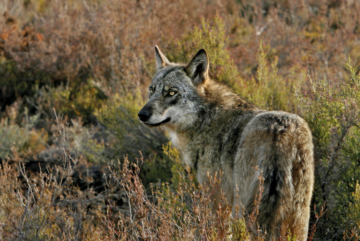Complemented by other coexistence measures, the programme will reduce livestock predation by Iberian wolves, enabling the recovery of this endangered carnivore.


Puppy power
Surrounded by a pen full of inquisitive sheep, Leão appears slightly ill at ease. Yet big things are expected of this timid three-month-old Serra da Estrela puppy, with a name that means “lion” in Portuguese. Once fully grown (and lion-hearted) at 18 months, he should prove an invaluable companion to his new owner, helping the shepherd to protect his flock from wolf predation in northeast Portugal’s Serra de Montemuro region.
As the trailblazer in a new guard dog programme, Leão is the first Serra da Estrela puppy to be embedded with livestock by the Rewilding Portugal team. The programme has been developed as part of the LIFE WolFlux project, which aims to boost the connectivity of the endangered Portuguese Iberian wolf sub-population south of the Douro River.
“The target is to eventually embed 100 dogs with livestock flocks and herds in the project area,” explains Rewilding Portugal Conservation Officer Sara Aliácar. “By reducing predation by wolves, and thereby promoting human-wolf coexistence, Leão and the dogs that follow him will contribute to wolf recovery by increasing the stability, interaction and territorial expansion of established packs.”
Reinvigorating a tradition
One of the oldest canine breeds on the Iberian Peninsula, Serra da Estrela dogs have been guarding livestock (sheep, cattle and goats) south of the Douro against attacks by Iberian wolves (a subspecies of the grey wolf) and stray dogs for centuries. Just as Leão is now, they have to be integrated into flocks and herds when they are still puppies in order to create a strong bond with the animals they are supposed to protect.

“A shepherd with Serra da Estrela dogs can guard against wolf predation far more effectively than one without,” explains Sara Aliácar. “Dogs invariably detect the presence of wolves first. In the shrubby, rocky habitat that characterises the area, they simply lie down, conceal themselves, and keep watch.”
While some shepherds south of the Douro still use dogs, the tradition has died out in many areas – especially those where wolves are seldom seen. But with the Rewilding Portugal team working to support wolf comeback, embedding guard dogs with livestock in areas where wolves may return is seen as a proactive measure.
Comprehensive support
The new livestock guarding programme will roll out according to demand – shepherds first have to make a request for dogs for the embedding process to begin. The Rewilding Portugal team then visit the shepherd to assess whether a dog is actually needed. If the evaluation is positive, then a puppy is provided free of charge, while the programme also supplies insurance, food and veterinary services until the animal is 18 months old.
“This is the age when a Serra da Estrela becomes an effective guard dog,” explains Sara Aliácar. “So we are effectively paying for everything until that point.”
The dogs themselves are supplied by Grupo Lobo, a Portuguese NGO that works to conserve Iberian wolves and their habitat. The NGO is also providing advice for the training of the dogs, facilitating the exchange of critical knowledge and best practice. If the embedded dog ends up producing puppies then the shepherd involved is encouraged to hand two back to the programme.
Complementary measures

The endangered Portuguese Iberian wolf population is in a precarious position. In addition to factors such as habitat loss, low connectivity between packs and conflict with humans, a lack of prey continues to hamper the animal’s ability to recover. Wolves south of the Douro currently rely heavily on domestic ungulates for food, with livestock making up more than 90% of the diet of some packs.
Reducing wolf predation on livestock by embedding guard dogs will only be fully effective if the wolves have alternative sources of food. Through The LIFE WolFlux project, which is funded by the European Commission and co-funded by the Endangered Landscapes Programme, the Rewilding Portugal team is working to increase the availability of natural prey for the wolves by boosting local populations of roe deer and thereby reinforcing natural food chains.
Preliminary survey work was carried out in 2019 to better understand the distribution and abundance of roe deer populations in the Western Iberia rewilding area – this will highlight the areas where the animals need most support. The Rewilding Portugal team also plans to distribute fencing to shepherds to enable them to further protect their flocks and herds from wolf predation.